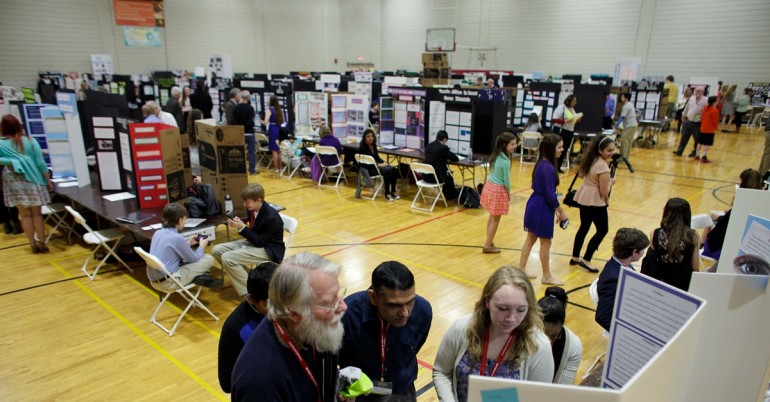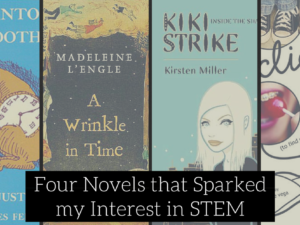
Learning STEM is relevant, no matter what you think your college major might be!
I knew throughout most of high school that when I went off to college, I probably wouldn’t pick a major in STEM ( science, technology, engineering, or math). I enjoyed many of my STEM classes like AP Calculus or AP Physics, but I felt my true passions were in humanities and social sciences. However, what I didn’t expect when I went off to college is how STEM would play such a big role in my college career, even when I was majoring in Women, Gender and Sexuality Studies and minoring in Political Science.
Now, as a rising senior reflecting back on the past three years of college, here are my insights on why learning STEM is relevant, no matter what you might major in during college!
You will likely have to take a few STEM classes for your college “general education” requirements.
Most colleges, from small community colleges to large research universities, require undergraduates to take a number of courses that count toward general education, or as their often called, “general ed,” credits. The requirements are different at every school; some colleges may have more specific requirements, or a higher mandatory number of total classes needed. No matter what college you’re considering or what the core curriculum is called, it probably includes a handful of STEM classes. At Yale, my STEM distributional requirements included two classes that qualified under quantitative reasoning and two science classes. I ended up taking Statistics: Social Sciences and Introductory Microeconomics for quantitative reasoning, and Biological Anthropology and Issues Approach To Biology. Although studying for the midterms and finals were painful, the classes also provided incredibly useful information and interesting experiences. My anthropology class had hands-on laboratory sessions where we studied real fossil and skeleton samples, and my other biology course helped me understand the Ebola outbreak happening in current events at the time. In high school, I occasionally wondered why I was learning biology or calculus when I wasn’t going to be a STEM major, but now I’m glad I paid attention and took thorough notes!
Most academic subjects are interdisciplinary.
One of the most exciting parts of college is learning how academic subjects are interdisciplinary, which basically means that topics often relate to different branches of study. One of my political science classes, Environmental Politics and Law, was a fascinating example of just that. The class covered topics like pollution, food and water safety, and energy efficiency; all of which are directly tied to the sciences. It was not a science course, so I never had to memorize chemical compound structures, but I did learn the general physics, biology, and chemistry behind these pressing environmental issues. Memorizing basic scientific information became much easier once I could see how it was tied to one of my passions: politics and environmental justice. STEM isn’t just visible in political science, either! My final paper for a science class was on the biological similarities and differences between female genital cutting and sex-assignment-surgery for intersex infants; two issues which are hotly debated in my women’s studies courses. Similarly, my Environmental Politics and Law paper was women’s differences in dangerous chemical exposure via cosmetic products. STEM is not an isolated topic; it intertwines with other topics in every course of study!
STEM affects our daily lives.
When most people go through their day-to-day routine, they don’t notice all of the small and big ways STEM impacts their lives. However, as soon as you start looking for them, STEM concepts you learned in the classroom will start popping up in real life! You’ll notice it in the car and momentum pulls your body during a sharp turn, in the doctor’s office while trying to figure out if you’re sick with a bacteria or a virus, or even just at home and wondering how the refrigerator stays cold. Especially in the current day and age, STEM innovations are drastically changing the way we interact with the environment, machinery, medicine, and even other humans. After my college STEM classes, I was able to open up the newspaper and better comprehend articles about things like the Ebola disease outbreak, Google’s new self-driving car, and California’s drought due to climate change. I’ve learned a new appreciation and love for STEM, finally realizing that it’s not just memorizing terms, it’s a way to understand the world.




